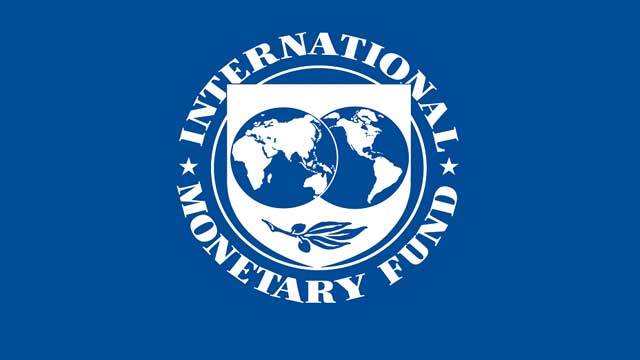International Monetary Fund (IMF) has lowered the projection for Bangladesh's GDP growth from 7.2% in FY22 to 6% in FY23.
It also predicted a 9.1% inflation rate in the current FY23 in World Economic Outlook October 2023 report published Tuesday (11 October).
According to the report, the financial agency predicts that GDP growth of Bangladesh may increase to 6.9% in 2027.
In its World Economic Outlook report on Tuesday, IMF also cut Asia's economic growth forecasts, with rising inflation forcing many central banks to tighten monetary policy even as exports face the brunt of slowing growth in trade partners such as the United States.
The downgrade underscores heightening uncertainty over Asia's recovery from the COVID-19 pandemic as darkening growth prospects for the United States, China and the euro zone economies stoke fear of a global recession.
Monetary policy divergence from steady US interest rate hikes is likely to continue strengthening the dollar, worsening emerging economies' debt woes and forcing some to further raise rates to avoid their currencies from falling too much, the IMF said.
Global economic activity is experiencing a broad-based and sharper-than-expected slowdown, with inflation higher than seen in several decades.
The cost-of-living crisis, tightening financial conditions in most regions, Russia's invasion of Ukraine, and the lingering COVID-19 pandemic all weigh heavily on the outlook. Global growth is forecast to slow from 6.0 percent in 2021 to 3.2 percent in 2022 and 2.7 percent in 2023. This is the weakest growth profile since 2001 except for the global financial crisis and the acute phase of the COVID-19 pandemic.
Global inflation is forecast to rise from 4.7 percent in 2021 to 8.8 percent in 2022 but to decline to 6.5 percent in 2023 and to 4.1 percent by 2024. Monetary policy should stay the course to restore price stability, and fiscal policy should aim to alleviate the cost-of-living pressures while maintaining a sufficiently tight stance aligned with monetary policy. Structural reforms can further support the fight against inflation by improving productivity and easing supply constraints, while multilateral cooperation is necessary for fast-tracking the green energy transition and preventing fragmentation.





